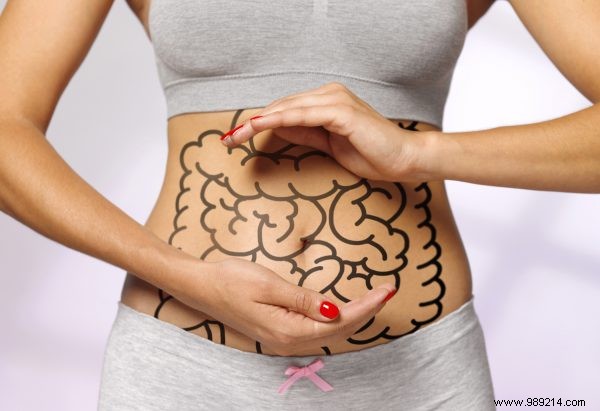
As a Hormone Factor trainer specializing in menopause, I've seen how the gut often signals deeper emotional truths. Let me share a real case from my practice that illustrates this connection.
She walked into my office beaming with a wide smile. She sat down and began chatting animatedly. Her breathing was shallow and rapid. She went on about her joy with her husband and child—a happiness that once seemed out of reach but now felt real. She mentioned her estrangement from her parents, yet insisted everything was perfect.
Read also Sandra's previous blog: 'From witch to fairy in 5 steps: this is how your cycle works'
Her reason for visiting? Irritable Bowel Syndrome (IBS), a condition affecting many women. Common symptoms include abdominal pain, diarrhea, constipation, severe cramps, bloating, gas, and a distended belly. From her intake form and her description, she maintained a healthy diet and lifestyle.
Over our two-hour session, she offered no clues to the root cause. In her view, her life was ideal.
Yet her body language and subtle cues told a different story—one her words overlooked.
This woman was under chronic stress. She suppressed her true emotions and thoughts. Unacknowledged feelings demand expression, and when ignored, the body manifests them physically.
Our autonomic nervous system has two branches: sympathetic (fight-or-flight accelerator) and parasympathetic (rest-and-digest brake). Balance between them allows recovery after action.
The sympathetic system kicks in during acute danger, overriding conscious control to ensure survival.
Once the threat passes, endorphins activate the parasympathetic system, restoring calm and well-being.
The sympathetic system slows digestion, while the parasympathetic enhances it. The gut also has its own enteric nervous system in the stomach and intestinal walls, directly linked to the brain—earning it the nickname 'second brain.'
This explains how diet and lifestyle profoundly shape mood and mindset.
Digestion begins before food hits your mouth. Anticipating a favorite meal triggers saliva rich in enzymes. Chewing mixes food with saliva, starting carb breakdown.
Food travels to the stomach via the esophagus, where proteins and fats break down and bacteria are neutralized.
Proper breakdown allows nutrients to enter the bloodstream for energy. Waste exits via the large intestine.
For added support, incorporate these herbs:
If fiber intake is adequate but bowel issues persist, consider temporary psyllium or glucomannan supplements.
My IBS client was disappointed with the action plan. Beyond dietary tweaks, it included stress reduction, exercise, and emotional self-reflection—steps she wasn't ready for. She believed diet alone would resolve her symptoms.
Struggling with IBS? Start a food and stress diary. Note energy sources and relaxation needs, then integrate them daily.
Sandra van Leeuwen is a certified Hormone Factor trainer with expertise in menopause. She empowers women over 40 through education, workshops, and retreats across the Netherlands. Passionate about healthy living, she inspires sustainable wellness. Based in Weesp with her family, she runs her practice there. Learn more at sandravanleeuwen.com.